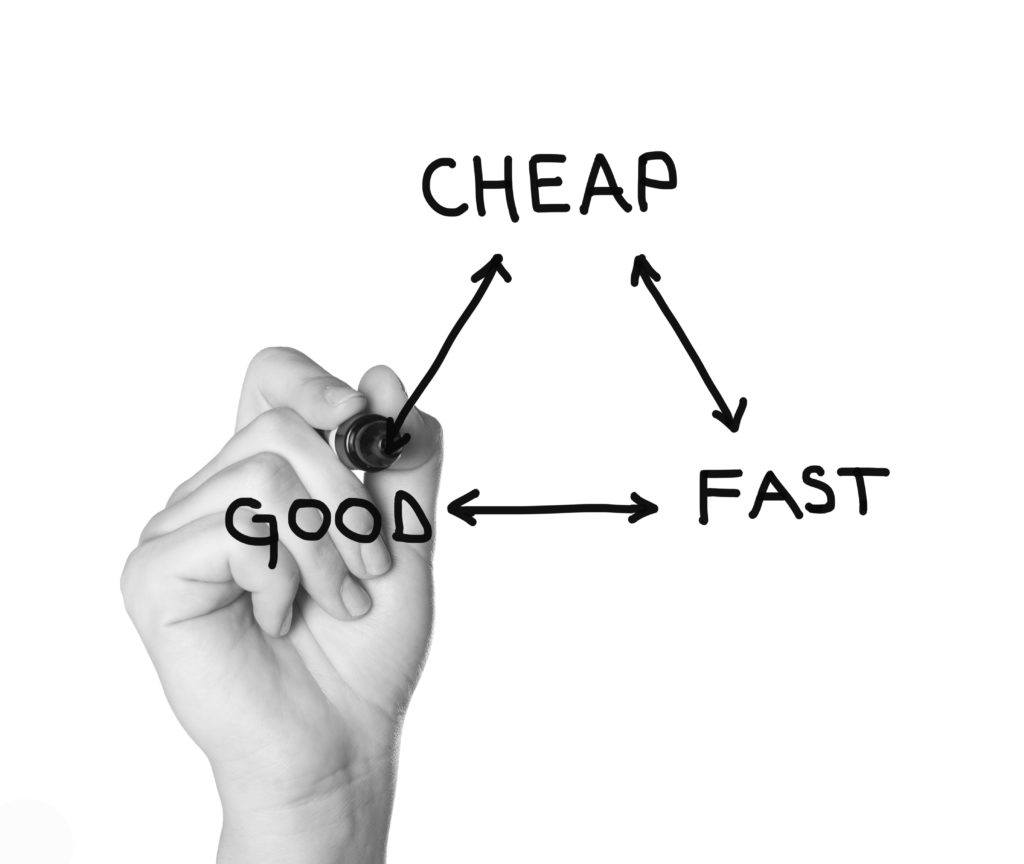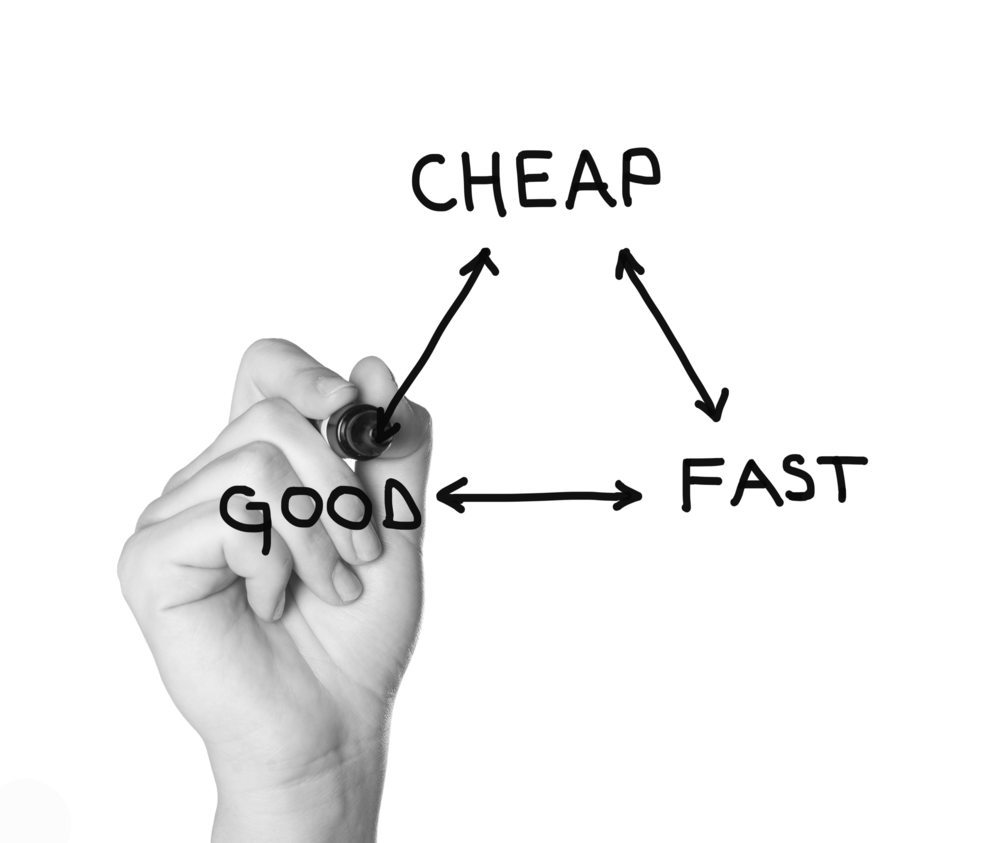I used to make computer games and back then we had a saying about project management: ‘you can have any two of fast, cheap or good.’ It’s a choice that most people don’t want to make.
Fast
Most clients have a schedule: a campaign deadline, a business plan commitment, a product launch. Usually this is immovable. They also have a start date for copy which is very movable. Consequently, many writing projects start very late. This leaves little time for planning or research.
I remember one project where I had to interview more than twenty people and write about 14,000 words of copy for a magazine in less than ten days because my client wouldn’t let me talk to anyone until the whole editorial plan was approved. Okay, I can work fast but there’s a cost; either I have to give up other work or give up my personal time.
The best way to do copy fast is to plan it out very carefully in advance. For example, if a client has a narrow window between getting approval and going to press, I can schedule my time during that gap and do all the preliminary research beforehand. However, in most cases bad planning is the cause of rush jobs.
I’d love to be able to say that “lack of planning on your part does not constitute an emergency on my part” but it sort of does if they pay for it! See my previous articles on project management tips from NASA, how to budget, plan and measure writing output and how to work with writers.
Cheap
Recently, a few prospective clients have chosen other suppliers or written copy themselves because they thought I was too expensive. Actually, this is fine. Working with this type of client means more stress for less money. My experience is that clients who want everything at a discount don’t see copywriting (or in some cases marketing itself) as an important business activity. For them, it’s more like insurance or buying office stationery. I believe that if something’s important, it’s worth paying for it to be done properly. Nobody asks for the cheapest brain surgeon.

Ironically, in many cases they want copy for lavishly-constructed websites or glossy brochures that cost a fortune to produce. This is like buying an expensive shop on Bond Street but not buying any stock to sell there. It ain’t what you spend, it’s how you spend it. As I said, you can have any two of fast, cheap or good. Sometimes I can save people money by telling them that they don’t need a copywriter.
It is possible to do things efficiently. This is not the same as cheap but it can save money. For example, resetting a client’s expectations about how much copy they need helps. I have several clients who think a case study should be 1,000-1,500 words. I think anything more than 500 words is unlikely to add value for the reader (especially since most case studies are so badly written). Bingo, I just doubled or trebled the number of case studies they can afford. It’s the same with websites. Do you really need all those pages and all those words when most visitors spend a minute or two on your site and read one or two pages? It’s often better to focus on four or five high-traffic pages and leave the ‘long tail’ to itself.
Good
This is the big opportunity for companies. Good writing leverages the investment made in collateral, websites and ad campaigns. It creates brand differentiation. But if you want these good results, you have to prioritise content. Good copy is not a bolt-on, go-faster extra. It’s an integral part of the process. It’s the payload on the missile, the jam in the doughnut, the finish line of the marathon. Do you agree?





